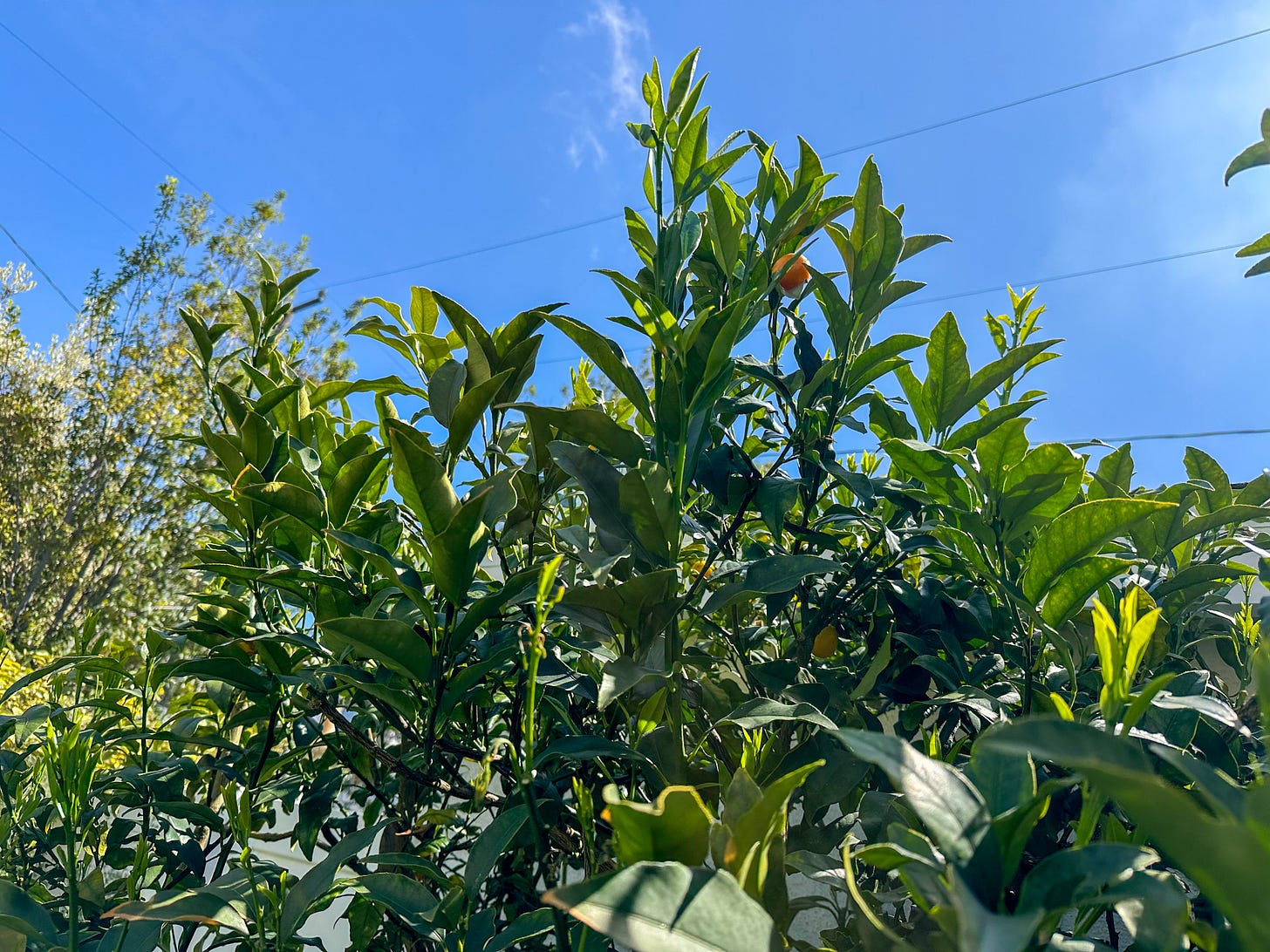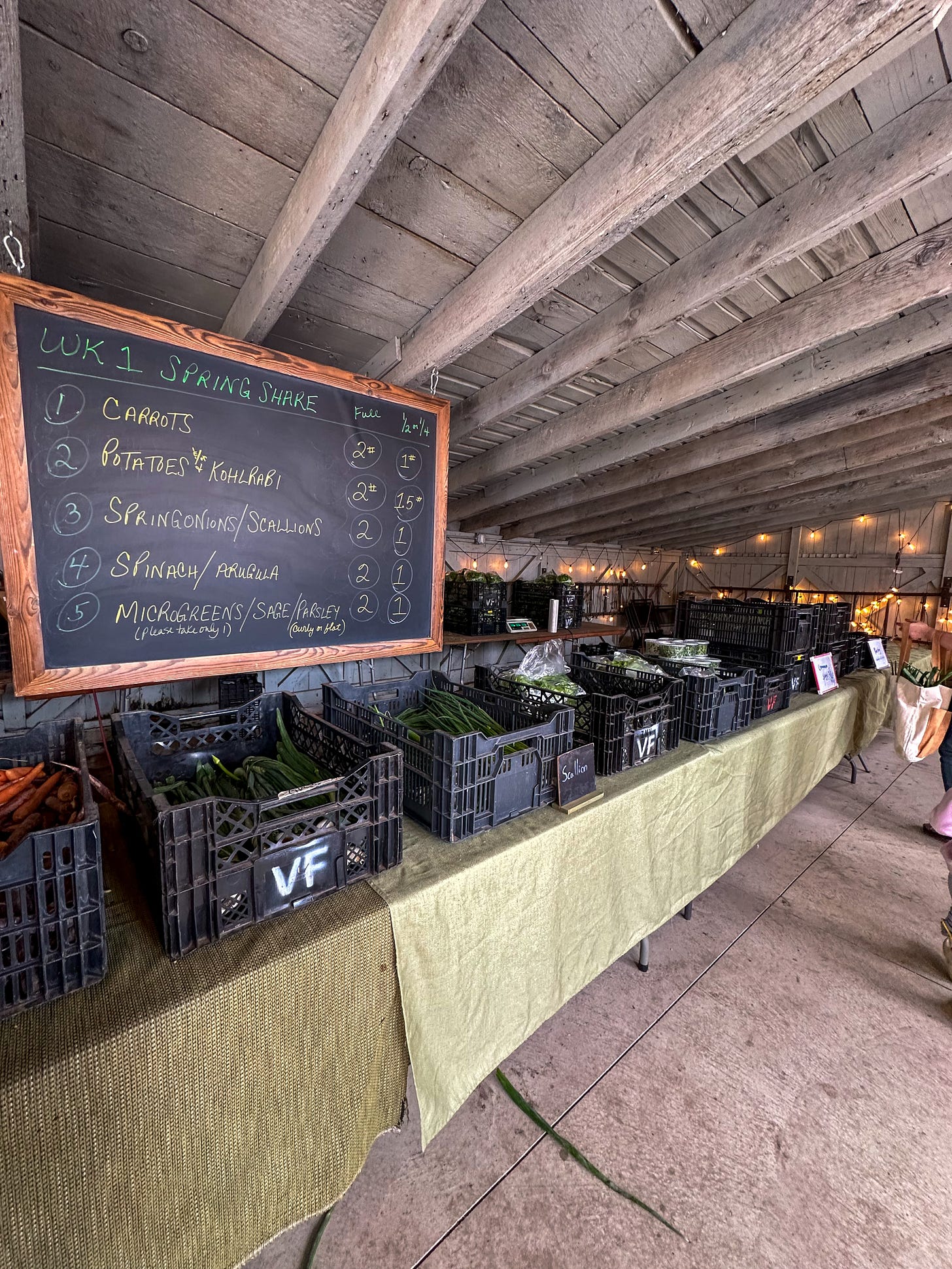Good morning! Happy (almost) Earth Day. Pretty cool that we’re all just hurtling around space on this fabulous lump of rock together, right?
Last week’s newsletter was all about how our food habits and systems can have negative impacts on the environment. You can read it here if you missed it. This week is all about solutions.
There are endless ways to be more environmentally-friendly when it comes to what we eat, where we shop, how we handle food waste, etc. We are far from perfect in my house, but we try our best! The list below includes a few of the green practices I try to implement in my own kitchen.
Waste less! Food waste that ends up in the landfill is a major contributor to greenhouse gas emissions, so the more we waste, the more emissions there are. Plus, you’re wasting money by not consuming what you buy. This is a simple concept, but can be harder than it seems (at least for me) - this article has some practical tips on how to reduce the amount of food you throw away.
Compost compost compost. This is a hill I’m willing to die on. If you’re unfamiliar with composting - it’s the natural process of breaking down organic material into compost, which is essentially a very nutrient-rich soil. By composting food scraps instead of tossing them in the trash, you reduce greenhouse gas emissions and help enrich soil health all at the same time. You can pay a service to take your food scraps (that’s what I do!) or try to do your own compost at home. If you’d like to try composting at home, this NPR article may be helpful!
Eat more plants! It takes more water and more carbon to produce animal products compared to plant-based foods. Just reducing your animal product consumption a bit can go a long way.
Reduce your plastic usage. From how it’s produced to how it’s disposed of, it’s no surprise that plastic has significant environmental impacts. Avoiding using single-use products like plastic grocery bags, plastic wrap, plastic water bottles, etc. where you can is beneficial. Some things I’ve been loving to help me reduce plastic usage lately include my reusable grocery bags, beeswax wrap as a plastic wrap alternative, and going to a refillery for items like spices/grains/dried fruit instead of buying new plastic containers each time I run out (the Earthly Refillery in GR is phenomenal).
Grow your own food and/or support your local farmers. The greenhouse gas emissions from variables like packaging and shipping really add up when you frequently consume food that’s grown far away, plus you don’t have as much information about how the food was produced. When you buy locally grown food or grow your own food, you reduce emissions and support your community. Plus, in my experience, something about locally grown food just tastes a whole lot better!
If anyone has any other tips/tricks/things that have worked for you or if there’s something blatant I missed in the list above, please share with the class in the comment section below 🙂
On the theme of buying local - last Thursday was our first community-supported agriculture (CSA) pick-up of the year. My husband and I are splitting a share with my parents - it’s fun to have an excuse to run to the farm with the fam each week, plus we’re able to swap recipes/share tricks and tips on how we’re using our veggies in our respective households. We’re doing three full seasons (spring, summer, and winter) with our CSA this year, so we’ll have veggies coming in all the way until December! Hooray! I’m quite literally so happy about it. Cheers to loving on your community, taking care of the earth, and eating some really tasty food all at the same time.
Thanks for making it to the end of the Frost Bites Newsletter! I’ll be back in your inbox next Monday with the weather forecast and recipe suggestions. In the meantime - get outside, eat good food, and remember all weather is ice cream weather.
SOURCES
Research shows significant environmental benefits of local food production: https://www.cals.iastate.edu/news/2022/research-shows-significant-environmental-benefits-local-food-production
Trash to treasure: the incredible benefits of composting: https://sph.umich.edu/pursuit/2019posts/benefits-of-composting.html
5 ways to be more sustainable with your diet: https://www.chhs.colostate.edu/krnc/monthly-blog/5-ways-to-support-sustainable-farming/
7 reasons to add more plants to your diet: https://www.ewg.org/news-insights/news/2024/01/7-reasons-add-more-plants-your-diet







